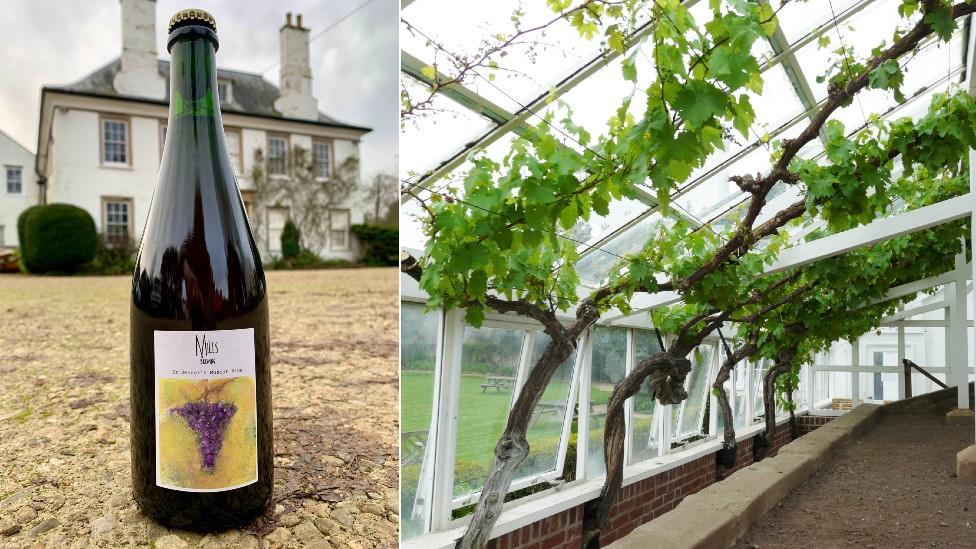Gloucester cattle breed at increased risk of extinction
- Published
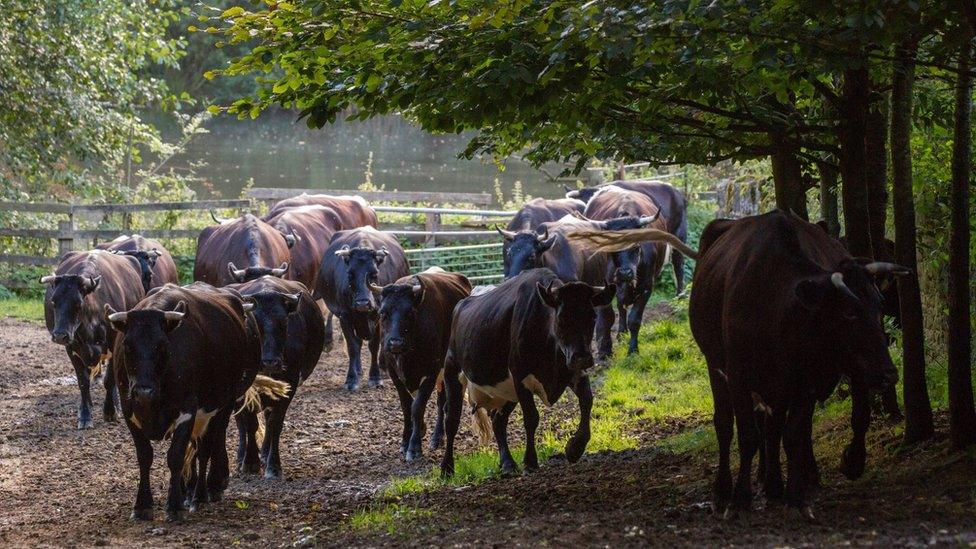
The Rare Breed Survival Trust (RBST) said that the number of herds in the UK had halved from 54 herds in 2006 to only 27 by 2020
Urgent action is needed to prevent the oldest breed of British dairy cow from becoming extinct due to fewer people breeding them, a charity has warned.
The Rare Breed Survival Trust (RBST) said herd numbers of Gloucester cattle had halved between 2006 and 2020.
Gloucesters date back to the 13th Century and their milk is used to produce cheeses such as Single Gloucester.
The breed was also used in Edward Jenner's 1796 smallpox experiments.
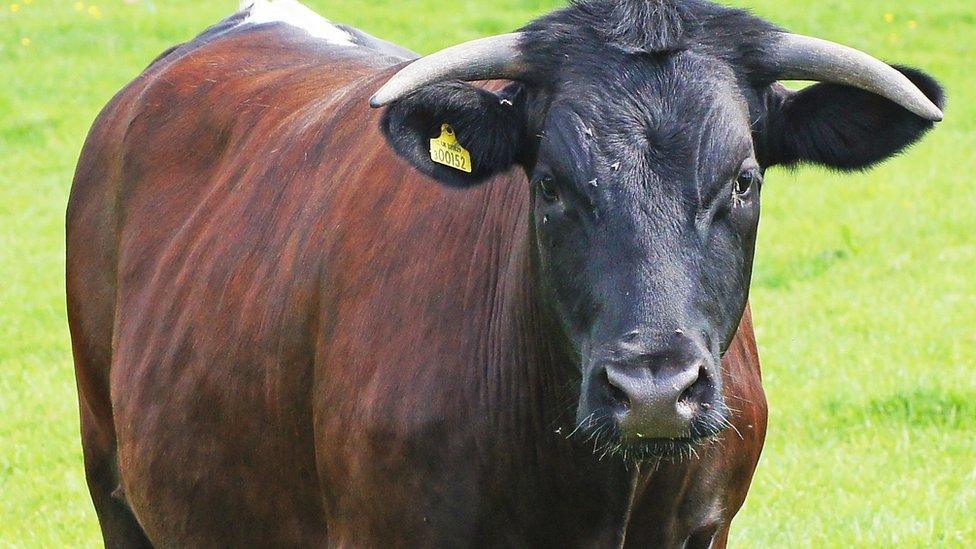
The Gloucester breed is famous for its use in producing cheeses such as Single Gloucester and Stinking Bishop
The UK-wide charity started in 1973 to monitor and promote rare and native breeds of farm livestock.
Chief executive Christopher Price said numbers of Gloucester cattle had stabilised in recent years but had always been fairly low because "they are so closely associated with a particular area" however changes to farming in the 20th Century meant that Gloucester cattle went "out of fashion... and farmers wanted cattle that provided either meat or dairy, rather than both".
A reduction in UK herds from 54 in 2006 to only 27 in 2020 has provoked cause for concern.
Mr Price said: "The classification of Gloucesters as a priority breed on the new RBST watchlist , externalunderlines that this is the time for urgent action."
He added the trust was working with dedicated Gloucester cattle breeders and "a number of actions can help safeguard the future of a rare breed including the banking of genetic material and helping establish herds with new breeders".
He also said that changes in public attitude to consumption and environment could help save the breed.
"As people become increasingly interested in where their food comes from, and more concerned about animal welfare and the environmental impacts of what they eat, we anticipate them coming back into fashion," said Mr Price.
The trust has also placed the Gloucester Old Spot pig and Cotswold Sheep on its at-risk list.
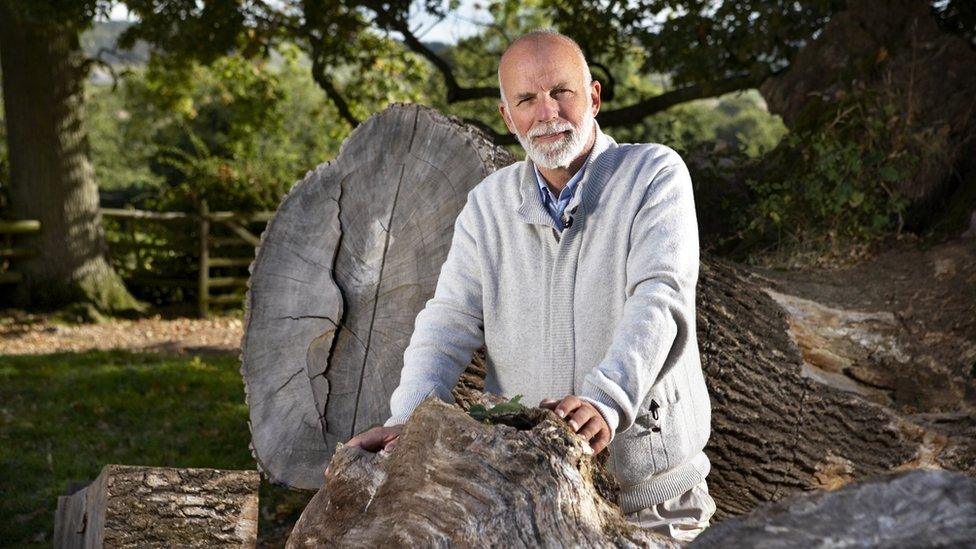
Cheesemaker Charles Martell, 75, has kept a herd of 20 Gloucester cattle at his small farm in Dymock, Gloucestershire since 1972
Cheesemaker and farmer Charles Martell, 75, has kept a herd of over 20 Gloucester cattle at his farm in Dymock, Gloucestershire since 1972 producing cheeses such as Stinking Bishop ad Single Gloucester, backed with a Protection of Designated Origin (PDO) status.
"I find it an affront when I drive around the county to see other breeds, they don't belong here.
"If everybody kept Gloucester cows, the breed would get improved vastly and people would have more to select from."
Mr Martell added that the grass-fed Gloucester breed was much more "general purpose" compared to the intensively farmed Holstein cows that are often corn-fed and give a huge quantity of milk.
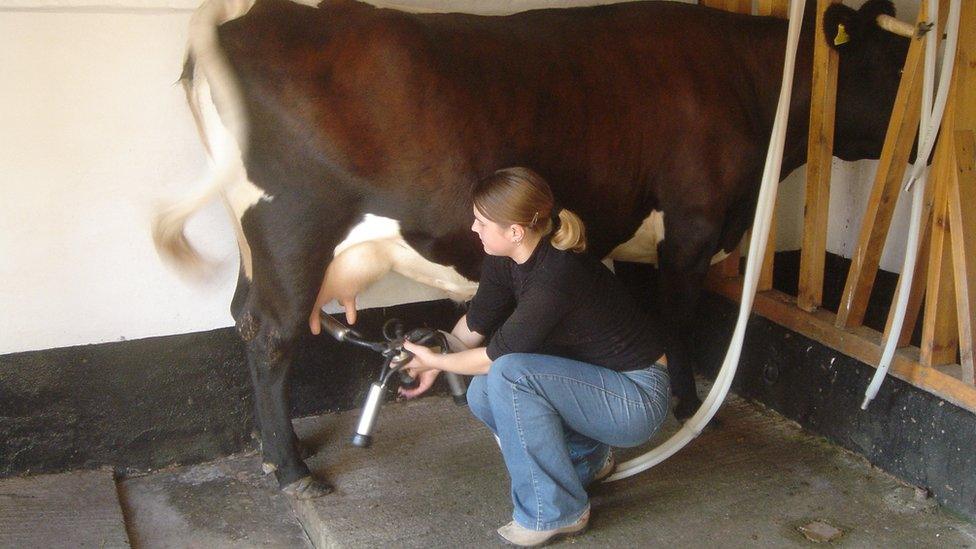
Cheese maker Charles Martell say grass-fed Gloucester breed were much more general purpose compared to Holstein cows
He said he was "disturbed" by the drop in Gloucester herd numbers but was not surprised, as he said many smaller herds of a few cows were sometimes kept by farmers for "novelty value" who then lose interest.
Mr Martell said his main concern was that the quality and size of the herds left and what owners were doing with the cattle.
"It'll never disappear because at the very least it'll be kept in a test tube, but people are beginning to understand the value of native breeds," he added.
"If you've got a county breed, so much the better for when people are travelling around and they come to visit Gloucestershire - they would expect Gloucester cheese and Gloucester beef."
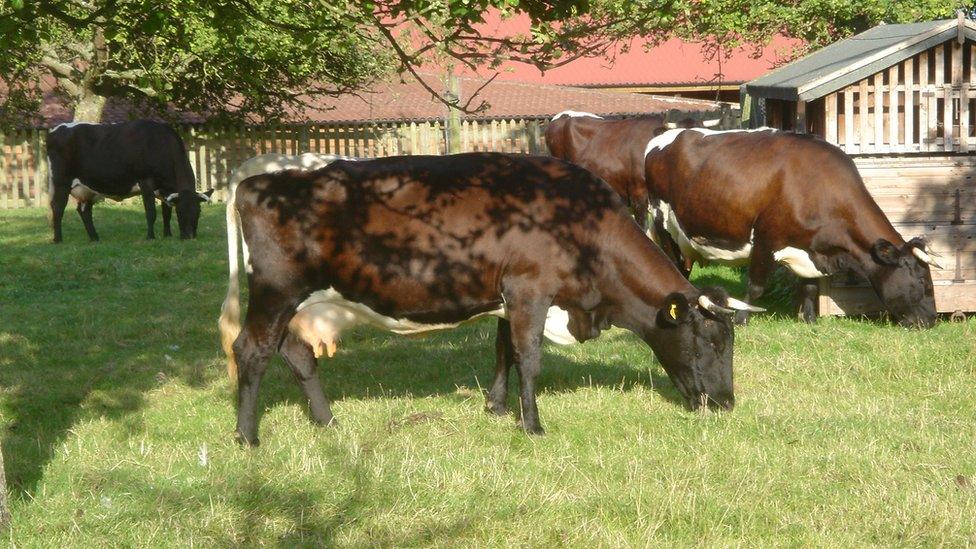
Charles Martell said "people are beginning to understand the value of native breeds"

Follow BBC West on Facebook, external, Twitter, external and Instagram, external. Send your story ideas to: bristol@bbc.co.uk , external
Related topics
- Published19 August 2014
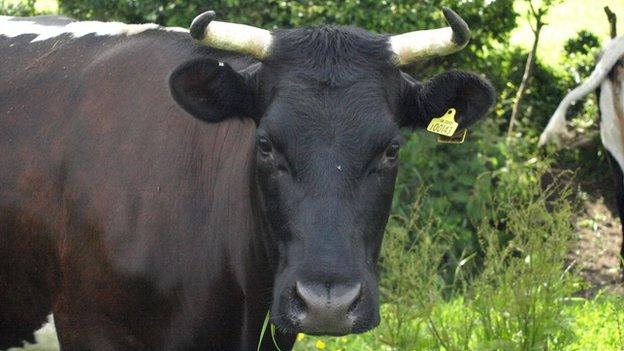
- Published7 September 2011
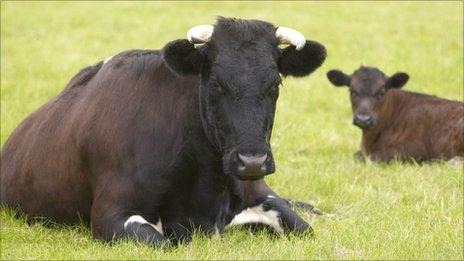
- Published17 May 2013
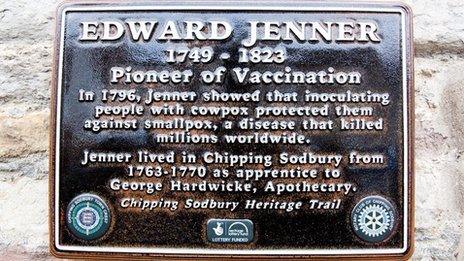
- Published23 December 2020
